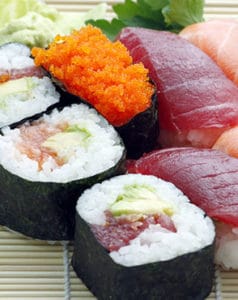How does diet affect hair health?
When we talk about healthy living and nutrition, we often mean the health of our bodies, forgetting that what we put in our mouths has the most impact on our hair’s health.
Healthy, thick, beautiful hair is a great confidence booster, but if it’s thin, dry, and brittle…
Genetic factors beyond our control largely influence hair health, including hair loss.
But.
We can provide our hair with everything it needs to grow and look beautiful, so even if genetics are not in our favour – we can keep it healthy and beautiful for longer.
Hair loss
Hair loss is painful for both men and women.
If you lose up to 100 hairs a day, that’s normal. Men, and to a lesser extent, women, tend to lose more hair as they age. However, there are many reasons for increased hair loss – from various diseases to contraceptive pills.
The following are the most common causes of hair loss:
- Genetics.
- Hormonal dysregulation.
- Hypothyroidism.
- Traumas.
- Infections.
- Chemotherapy.
And – nutritional deficiencies and/or dietary supplement use.
This time, let’s not talk about genetics and other factors we have little control over – let’s look at how hair health is affected by what we eat.
Micronutrient deficiencies
Hair consists of the hair shaft, which is visible, and the hair follicle, which is under the skin. Hair grows from the hair follicle, and hair follicle cells are the fastest-dividing cells in the body (hair grows at an average rate of 0.35 mm per day).
Therefore.
It’s no surprise that if hair doesn’t get everything it needs – the health of the hair can deteriorate rapidly.
Iron deficiency
Iron deficiency is the most common nutrient deficiency worldwide and, among other health problems, can also cause hair loss.
Iron deficiency is associated with hair loss known as telogen effluvium (TE) – usually, temporary hair loss characterised by a disruption of the normal hair growth cycle. New hair continues to grow.
Exactly how iron deficiency causes hair loss has not yet been fully understood, but it appears that the iron needed for hair growth is diverted to other organs that are more important for the body’s functioning.
Studies have shown that people with increased hair loss tend to have lower levels of iron in their blood and hair than those without hair loss.
Vitamin D deficiency
Vitamin D plays an important role in both hair growth and hair follicle health.
Studies show that vitamin D levels are lower in people with hair loss (including women).
Studies have also shown that vitamin D supplementation promotes hair regrowth in some cases.
In other words, people with increased hair loss should check their vitamin D and iron levels.
Zinc deficiency
Zinc is a mineral that plays an active role in immune function, protein synthesis, cell division and other processes.
Zinc is essential for hair follicle function, helps protect hair follicles from shrinking (and slowing hair growth) and promotes hair follicle renewal.
Zinc deficiency can cause hair loss, and studies show that people who suffer from hair loss tend to have lower zinc levels than people with healthy hair.
Other nutrients that can affect hair loss
In addition to the vitamins and minerals listed above, studies have also found that hair loss is associated with deficiencies in the following nutrients:
- Copper.
- Vitamin B7 (biotin or vitamin H or coenzyme R).
- Vitamin B12 (cobalamin).
- Vitamin B9 (folate or folic acid).
- Vitamin B2 (riboflavin).
Read more about vitamins and their effects HERE.
Mind your hair loss can be caused by several factors – a deficiency of one or more nutrients is one of them.
If you suspect that a nutrient deficiency may be causing your hair loss, consult your doctor and have a blood test to assess your micronutrient levels to rule out or confirm this suspicion.
Calorie and protein restriction
The cells that make up the hair follicle (the part of the hair that produces hair) have an extremely high turnover rate – new cells grow and replace old ones very quickly.
This makes hair very sensitive to protein and calorie deprivation, as hair is made up of proteins and requires energy (calories) for the cell formation processes.
If there is insufficient protein in the body, it is diverted to more vital processes, and hair grows more slowly – it becomes thinner and more brittle and can lose its natural shine and even colour.
Calorie restriction, in turn, affects the energy supply to the hair follicles, which can lead to hair loss.
Studies have shown that so-called crash diets with significant calorie restrictions can cause hair loss in some people.
Some low-calorie diets limit the intake of protein as well as calories, which can lead to thinning and hair loss.
Rapid weight loss
Many people who experience significant weight loss also experience hair loss.
This is usually due to extreme situations such as:
- After an extreme diet which did not provide enough calories or nutrients.
- After bariatric surgery (gastric reduction).
You might think that hair loss after bariatric surgery is caused by a lack of nutrients and – in many cases – this is true.
However, for some people, hair loss can be caused by the stress of surgery and the rapid weight loss that follows surgery.
Studies have shown that:
- Acute hair loss that occurs within 3 months of bariatric surgery is related to the surgery itself.
But.
- Hair loss that starts 6 months after surgery and beyond may be caused by nutrient deficiencies resulting from inadequate absorption of nutrients.
It is, therefore, vital to monitor micronutrient intake after bariatric surgery and to take appropriate nutritional supplements if necessary. This will help to prevent not only surgery-related hair loss but also other serious complications.
Use of food supplements
Taking certain nutrients as supplements can help stimulate hair growth and keep it healthy.
But.
Taking other supplements can have the opposite effect.
In other words, it is possible that you are not deficient in nutrients, but your hair health is damaged by substances that you take in too much, for example:
- Selenium.
- Vitamin E.
- Vitamin A.
For example, excessive intake of vitamin A through supplements can overload the liver. If the liver is unable to process all the vitamin A intake, the excess vitamin A is released into the bloodstream, leading to increased blood levels (Hypervitaminosis A).
But.
Maintaining optimal blood levels of vitamin A is essential for hair follicle function, and excessive levels can cause hair loss and/or excessive greasiness.
What is worrying is that many supplements advertised as hair growth boosters contain high amounts of nutrients that can cause hair loss (if taken in excess).
This applies not only to synthetic supplements but also to herbal supplements, so:
- The label “Natural”, “Organic”, or “Herbal” does not always mean that the product is better.
- If you take dietary supplements – try not to exceed the recommended daily intake.
- Be sure to consult your doctor before you start taking supplements.
However.
Too many nutrients harmful to hair can also be ingested through diet – for example, a woman who ate 10-15 paradise nuts (high in selenium) every day for 20 days developed serious health problems and lost all her hair.
Doctors found that the level of selenium in her blood was almost five times higher than normal and was the cause of the hair loss.
Other factors that can cause hair loss
According to studies, hair loss can also be caused by factors like:
- Smoking.
- Excessive alcohol consumption.
- Stress.
- Lack of sleep.
A 2013 study of 92 male identical twins found that smoking, excessive drinking (more than 4 drinks per week), increased caffeine consumption and higher stress duration were associated with hair loss.
Interestingly, the study also found that complete abstinence from alcohol and prolonged exercise may also be associated with hair loss.
Studies have shown that poor sleep quality and smoking are associated with the autoimmune disease alopecia areata, which causes hair loss.
A 2020 study found that alcohol consumption and poor sleep were associated with more severe hair loss in women, while abstinence from alcohol and adequate sleep were associated with less hair loss.
In other words, quitting smoking, moderate alcohol consumption, healthy sleep and stress management, combined with a nutritious, balanced diet, can help keep hair healthy and reduce the risk of hair loss.
Foods that can intensify hair loss
The foods that can have a negative impact on hair health and growth are:
Simple carbohydrates
A 2016 study found that diets high in simple carbohydrates can contribute to hair loss.
According to the authors, too many simple carbohydrates in the diet increase the secretion of sebum (an oily substance secreted by glands near the hair follicle). Although sebum is beneficial for hair health, too much of it can cause inflammation, which is harmful to hair health.
Foods high in carbohydrates (sugars) also cause the pancreas to increase insulin production, hurting the blood vessels in the scalp.
The above applies mainly to foods containing simple or fast carbohydrates – sweets, cakes, biscuits, sweetened drinks, etc. Refined cereals such as white rice, white-flour pasta or white-flour bread are also included.
Therefore.
Try to eat more whole-grain products, beans and vegetables, which contain mainly complex carbohydrates.
Fish with high mercury content
In 2019, two women with hair loss were reported with high levels of mercury in their blood. Their hair loss improved after they reduced the number of mercury-containing fish in their diet.
Given the high nutritional value of fish, it should certainly not be avoided. We should all eat 2-3 portions of fish a week.
However.
People suffering from hair loss would do well to choose low-mercury fish such as tuna, salmon and cod.
Oil-cooked (deep-fried) foods and red meat
The authors of a 2010 study recommend avoiding deep-fried foods and red meat to improve hair health. The authors of the study claim that these foods can hurt hair health because they cause excessive sebaceous gland activity and sebum secretion.
Foods that promote hair health and growth
Research on the impact of diet on hair loss is still at an early stage. However, the 2020 Review points out that hair loss, called telogen effluvium, can sometimes be linked to diets deficient in calories, protein or certain micronutrients.
A 2016 study points out that a balanced diet including sufficient protein, vitamins and minerals is necessary for hair health and growth.
Here are the nutrients and their sources that are vital to the health of our hair:
- Protein contains amino acids that are essential for hair growth. Good sources of protein include:
- Cottage cheese.
- Eggs.
- Yoghurt.
- Beans.
- Poultry meat.
- Seeds and nuts.
- Fish.
- Healthy fats. Unsaturated fats moisturise the hair and prevent hair loss. Good sources of healthy fats are:
- Fatty fish such as salmon, trout, sardines, etc.
- Flaxseeds.
- Walnuts.
- Extra virgin olive oil.
- Vitamin C. Vitamin C deficiency can negatively affect hair shaft formation. Good sources of vitamin C are:
- Dark green leafy vegetables.
- Strawberries.
- Citrus fruits.
- This form of vitamin B stimulates hair regeneration. Good sources of folate include:
- Peas.
- Beetroot.
- Asparagus.
- Vitamin B7 or biotin. Biotin promotes hair growth. Good sources of biotin are:
- Egg yolk.
- Sweet potatoes.
- Salmon.
- Sunflower seeds.
- Almonds.
- Vitamin B3 (also called vitamin PP) or niacin. Niacin helps dilate blood vessels, which improves circulation and is also involved in the production of creatine, a key component of hair. Good sources of niacin include:
- Salmon.
- Tuna.
- Whole grain products.
- Peanuts.
- Seeds.
- Iron: Iron is a major component of haemoglobin, which is responsible for transporting oxygen. Iron is also involved in the formation of creatine. Good sources of iron include:
- Beef.
- Poultry.
- Spinach.
- White beans.
- Lentils.
- Dried apricots.
Key takeaways
Many factors can affect hair loss, including medical conditions, hormonal dysregulation and infections.
Some diets, eating habits and specific foods can also affect hair health, such as foods with too many simple carbohydrates or fish high in mercury.
But.
Nutrient-rich foods, especially foods high in micronutrients and vitamins B and C can improve hair health and prevent hair loss.
In addition to micronutrient and vitamin deficiencies, insufficient calorie and/or protein intake and the use of certain dietary supplements also affect hair health.
Diet and hair loss: effects of nutrient deficiency and supplement use
The Role of Vitamins and Minerals in Hair Loss: A Review
The Role of Vitamins and Minerals in Hair Loss: A Review
Serum Biotin Levels in Women Complaining of Hair Loss
Evaluation and diagnosis of the hair loss patient: part I. History and clinical examination
Nutrition and hair: deficiencies and supplements
Nutrition of women with hair loss problem during the period of menopause
Pros & cons of some popular extreme weight-loss diets
Alopecia in women with severe and morbid obesity who undergo bariatric surgery
Hair loss in females after sleeve gastrectomy: predictive value of serum zinc and iron levels
Telogen Effluvium – a review of the science and current obstacles
LiverTox: Clinical and Research Information on Drug-Induced Liver Injury
Alopecia and Associated Toxic Agents: A Systematic Review
Implications of cigarette smoking on early-onset androgenetic alopecia: A cross-sectional Study
HAIR LOSS: WHO GETS AND CAUSES
The Role of Diet as an Adjuvant Treatment in Scarring and Nonscarring Alopecia

Help to maintain this site, create interesting articles and delicious low-calorie recipes!
Share this article
Follow me on Facebook
I recommend reading these articles as well

Body recomposition and how to evaluate your progress?
What is a healthy ratio of muscle mass to body fat? How does it affect our appearance and how to evaluate it?

Sources of protein if we do not eat meat
I often get questions about the daily use of meat - so what to eat instead of meat to provide enough protein and other nutrients?

Weight loss hacks
And why you don't need them, because there is an easier and more effective way to get lasting long-term results.

Calorie counting and weight loss
What are calories? Does calorie counting help you lose weight? How many calories should I eat per day to lose weight? Myths about calorie counting.

